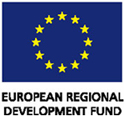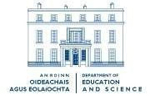Minister O’Keeffe Opens Refurbished Translational Research Laboratory for Medical Research into Cancer, Metabolic Disorders and Infection
Posted on: 11 December 2009
Research into cancer, infection, immune deficiency and metabolic disorders will benefit from state of the art facilities in a newly refurbished laboratory, the Sir Patrick Dun Translational Research Laboratory at TCD’s School of Medicine and St James’s Hospital which was opened by the Minister for Education and Science, Batt O’Keeffe, TD on December 10th last.
Commenting on the significance of the new facility, Professor Dermot Kelleher, Head of TCD’s School of Medicine and Vice Provost for Medical Affairs stated: “The refurbishment will further facilitate interdisciplinary research at the highest level for scientists and clinicians. With the aid of the facility and its advanced technology it is intended that the important research carried out by Trinity’s clinicians and scientists may be translated more rapidly into clinically effective management strategies for patients.”
“The Sir Patrick Dun laboratory as a modern research facility is also excellently equipped, and readily positioned to generate high quality research output, train post-graduate researchers to PhD level, and foster national and international collaborations.”
Professor Tom Rogers, Head of Clinical Microbiology, who co-ordinated the project on behalf of the School of Medicine said: “Our immediate proximity to the Central Pathology Laboratory, and St James’s Hospital, significantly increases our capacity to undertake cutting edge translational research in collaboration with clinical colleagues.”
The project has increased the School of Medicine’s research space by over 900 sq.m. in addition to new advanced equipment for the laboratories. It was funded through the Higher Education Authority’s Research Facilities Enhancement Scheme (RFES).
Included in the current research programmes at the Sir Patrick Dun Translational Research Laboratory are:
The Department of Histopathology hosts the Health Research Board funded Irish Cervical Screening Research Consortium [CERVIVA], and two EU consortia: MICROACTIVE and AUTOCAST. Research strengths include the areas of cervical, head and neck, prostate and ovarian cancers, pregnancy transcriptomics and proteomics involving the study of RNA and proteins in pregnancy and the role of Toll-like receptors in cancer and cancer stem cell biology.
The Department of Immunology acts as a national referral centre for both patients and patient samples who have disorders of their immune system Its current research interests include coeliac disease, immune deficiency involving natural killer cells, the role of natural killer T cells in human disorders especially viral infections and the inflammatory lung disorder bronchiectasis among others. In a recent study, it identified a gene on Chromosome 8 which plays an important role in immunity.
The Biochemistry Department significant areas of research include the development of molecular diagnostic methods to facilitate clinical management of inherited metabolic disorders and causes of obesity. It is also establishing the contribution of genetic factors to both obesity and diabetes mellitus by studying rare subtypes of these disorders. This approach could potentially lead to more advanced diagnostic and therapeutic strategies for dealing with these common medical conditions.
The Department of Clinical Microbiology’s current research areas include: The study of E.coli as a cause of disease and its resistance to antibiotics. Tubercolosis and the prevalence of latent TB in the healthy population. Genetic typing of TB strains in the Irish population is also being conducted. An EU funded project involving the invasive fungal disease, aspergillosis, that is a life threatening complication of treatment for leukaemia is being carried out in conjunction with the National Stem Cell Transplant Centre and international institutions. There are also new collaborations with the National MRSA Reference laboratory and the Irish Mycobacteria Reference laboratory (IMRL) based in St James’s Hospital.
Findings from the above research programmes in all four departments have been published in leading peer- reviewed international medical and scientific publications, and together with the quality research, postgraduate researchers are being trained to PhD level through the programmes.
Notes to Editor:
About Sir Patrick Dun:
Sir Patrick Dun was a President of the Royal College of Physicians of Ireland and played a significant part in the establishment of the first Trinity College Medical School which will celebrate its Tercentenary in 2011. His bequest financed the construction of Sir Patrick Dun’s Hospital where the primary purpose was to facilitate the teaching of medicine. The sale of the Sir Patrick Dun’s Hospital site in the 1980s provided funds that helped create this multidisciplinary laboratory which facilitated translational medical research that is now firmly embedded in Trinity College Dublin’s research strategy.

Minister Batt O’Keeffe with Dr John Hegarty, Provost and Prof Tom Rogers, Head of Clinical Microbiology, TCD.




